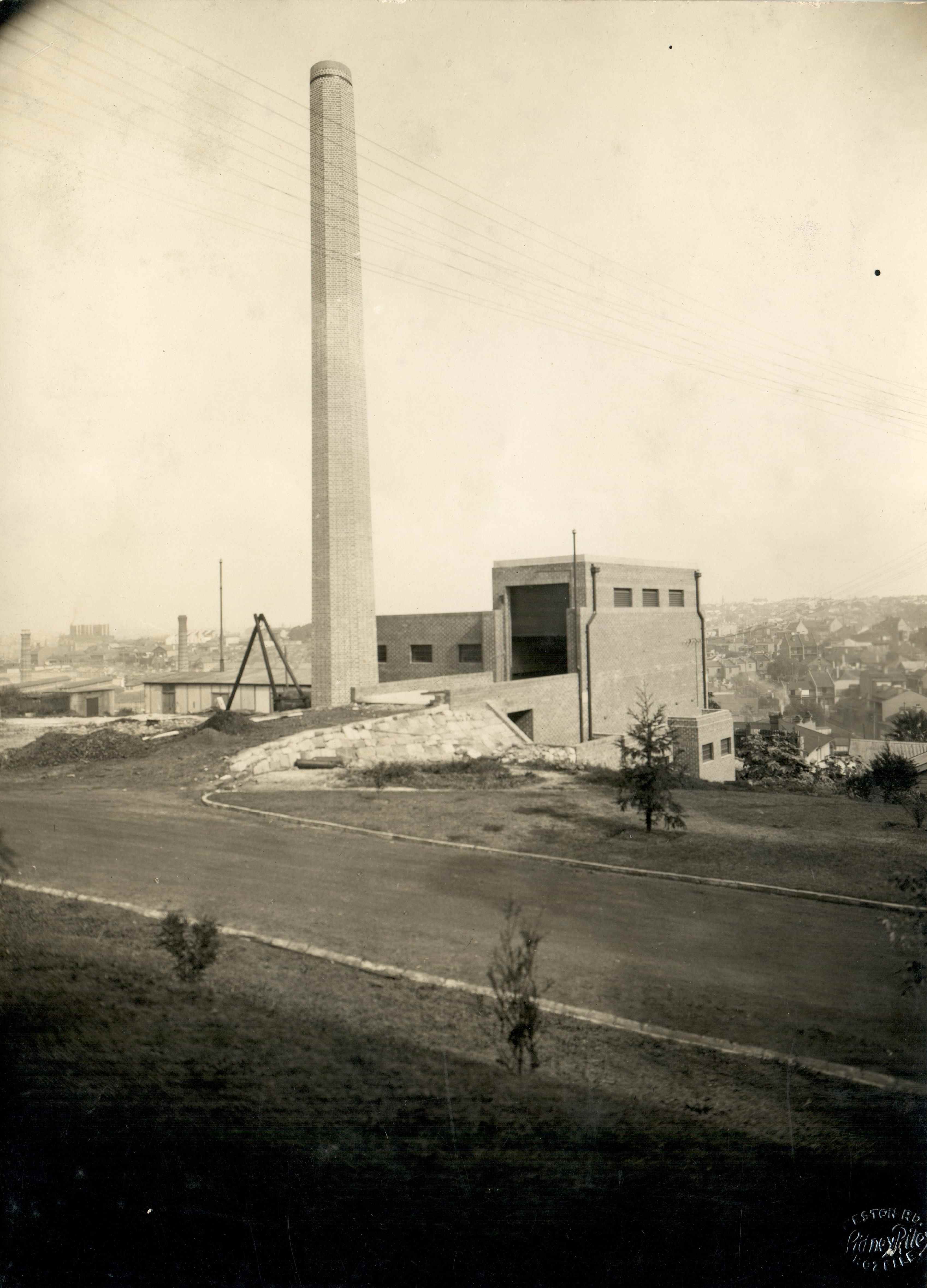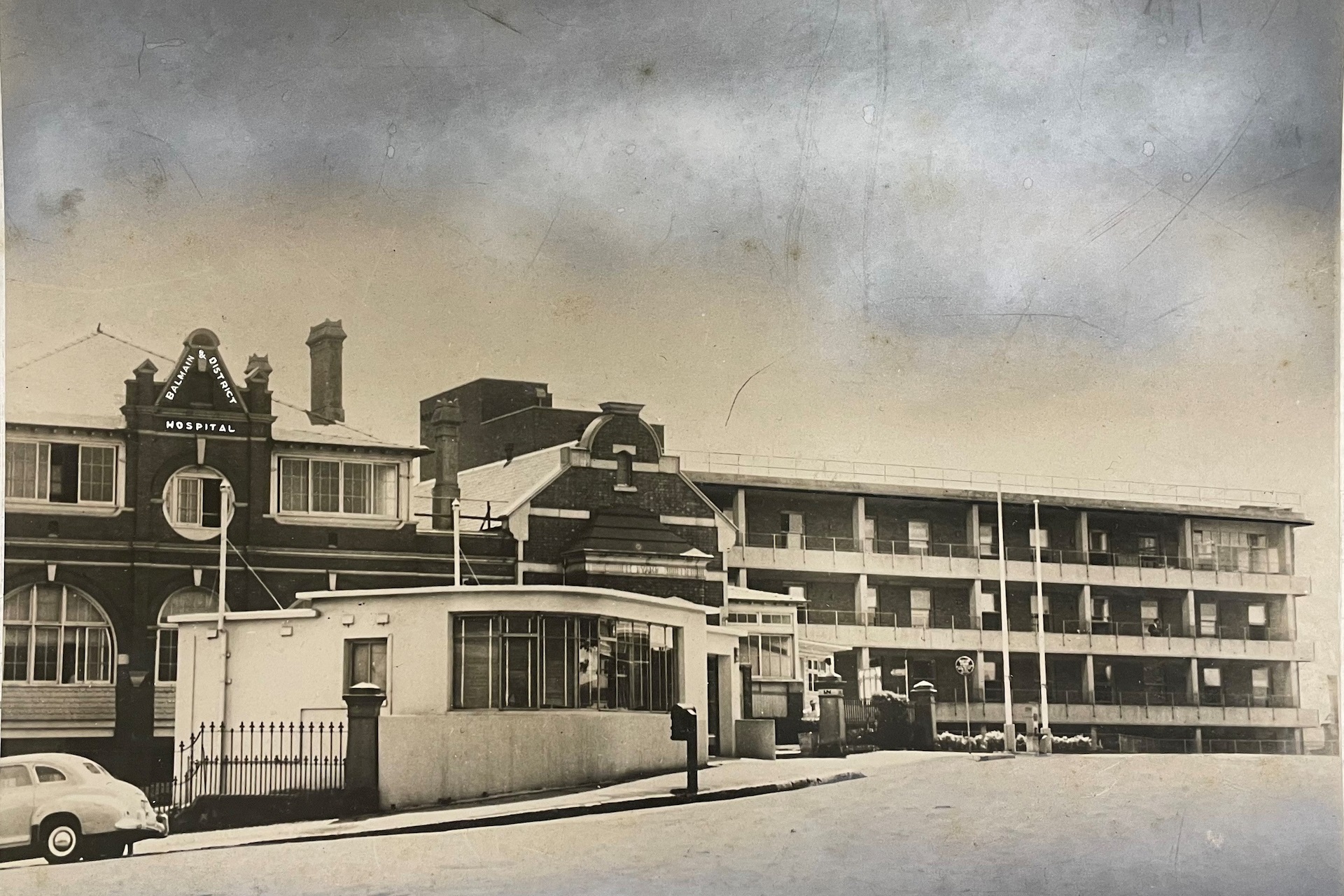
Historic Timeline
From four patients to over 200. This historic timeline explores the development and history of the first suburban hospital in New South Wales.

1884 – With the increase and expansion of industries including engineering, chemical, glass, soap and canning factories lining the foreshores of Balmain peninsula, there was also an increase in worker related injuries. The distance from city hospitals and the dangers and difficulties of transport led to public agitation for a Cottage Hospital to treat people locally. A cottage on Darling Street was acquired rent-free to serve as a hospital. Opening on 26 June 1885 the four-room Balmain Cottage Hospital treated 39 patients during the first year.
That considering the rapid increase of population in this Borough, and its large and important manufacturing industries, the time has now arrived when a Cottage Hospital is imperatively needed to provide for the frequent accidents that occur, and the proper treatment of serious cases of illness that must arise in such a thickly populated area.
– Balmain Public Meeting, 1884

Plans for expansion were immediate and Alderley House on Booth Street (current site) was purchased for £3000. The hospital was relocated in August 1886. In 1891 a new wing was added to provide a new operating room and a telephone installed in 1892. The Evans Ward was added in 1897 and formal nurse training commenced in 1900 with accreditation by the Australian Trained Nurses’ Association.
1901 – Victoria Ward built. This southern wing, was two-storey and included a seven-bed women's ward, six-cot children's ward and a surgery for the outpatients department.
1907 – Alderley House practically rebuilt increasing accommodation by 42 beds and in 1908 the Balmain Cottage Hospital becomes Balmain and District Hospital.
1912 – The Hospital is electrified and an ‘X-ray plant’ installed.
1921 – Adjoining cottages in Booth Street and Little Stephen Street acquired for nurses' accommodation and for the Balmain branch of the Anti-Tubercular Dispensary. The steam laundry becomes operational.

1923 – The Booth Street cottage is converted to the Betts Children’s Ward. A 24 hour casualty services commences the following year and clinical services begin to expand with Pathology and Bacteriology services. More cottages on Booth Street are purchased as Nurses’ Homes.

1929 – The Public Hospitals Act 1929, which commenced on 1 November 1929, listed the hospital on its Second Schedule with the corporate name Balmain District Hospital. Second Schedule Hospitals are public, incorporated, and governed by their own boards of directors.
For the year ending 30 June 1930, the Commission reports that Balmain has 107 beds, has treated 2673 in-patients and had 91,894 out-patient attendances.
– Balmain Hospital Annual Report, 1930
1934 – An additional floor added to create the Alfred Reed Ward, and the basement is converted to accommodate more women in the Jane Patient Ward.
1937 – A new boiler house commences construction accommodating two coal fired boilers but is interrupted with the outbreak of war, not being finished until 1941.

1940 – Callow House is purchased and converted to an Administration Block, and excavation commences for a major extension to build a new four-story ward block to accommodate a further 96 patients.
1942 – Thornton House opens extending Balmain Hospital accommodation to 260 beds. Commox House is purchased the following year and converted into another Nurses’ Quarters.

1947 – New Boiler House completed and Kiosk Building constructed at front of hospital.

1960 – Harold Simpson Wing opens accommodating four new operating theatres, a new central sterilising department, Colgate Ward and a new labour ward.
1966 – Marion Steward Training School for Nurses officially opens.

1968 – The Balmain and District Hospital is officially renamed The Balmain Hospital.
1971 – Glebe Men’s Home acquired under 50-year lease to provide a nursing home and hostel for a further 50 patients, know as the Glebe Anex.

1976 – New kitchens and staff cafeteria opened.
1980 – Last baby born and maternity unit closes in November with services relocating to the King George V Memorial Hospital for Mothers and Babies at RPA.
1993 – Balmain Hospital winds down surgical, orthopaedic and emergency services, along with intensive and coronary care services when its role is redefined after joining the Central Sydney Area Health Service. The following years include major refurbishments of more than $1 million, transforming Balmain Hospital to the new geriatric and rehabilitation facility for Central Sydney Area Health Service. The refurbishments include a new physiotherapy department, conference centre, medical records department, morgue, and administration section. An innovative new GP Casualty unit opens to service the needs of the general public.

2006 – Mort’s Dock Unit is refurbished for the Centre for STRONG Medicine Clinic (Strength Training Rehabilitation and Outreach Needs in Geriatric Medicine) and a 14-bed Transitional Care Unit opens.
2015 – Balmain Hospital celebrates its 130th anniversary with 278 staff, 92 beds, 1082 admissions and over 13,000 general practice casualty presentations.
Balmain Hospital has been in my life forever. I was born there in 1960 and my mother was working there at the time. It has always been a great place to work, with many passionate and dedicated staff and a great community feel.
– Debra Donnelly, Sydney Local Health District staff member, 2015
2024 – Today, the original Balmain Hospital Main Building is heritage listed on the NSW Heritage Register and is used for administrative and support staff.
